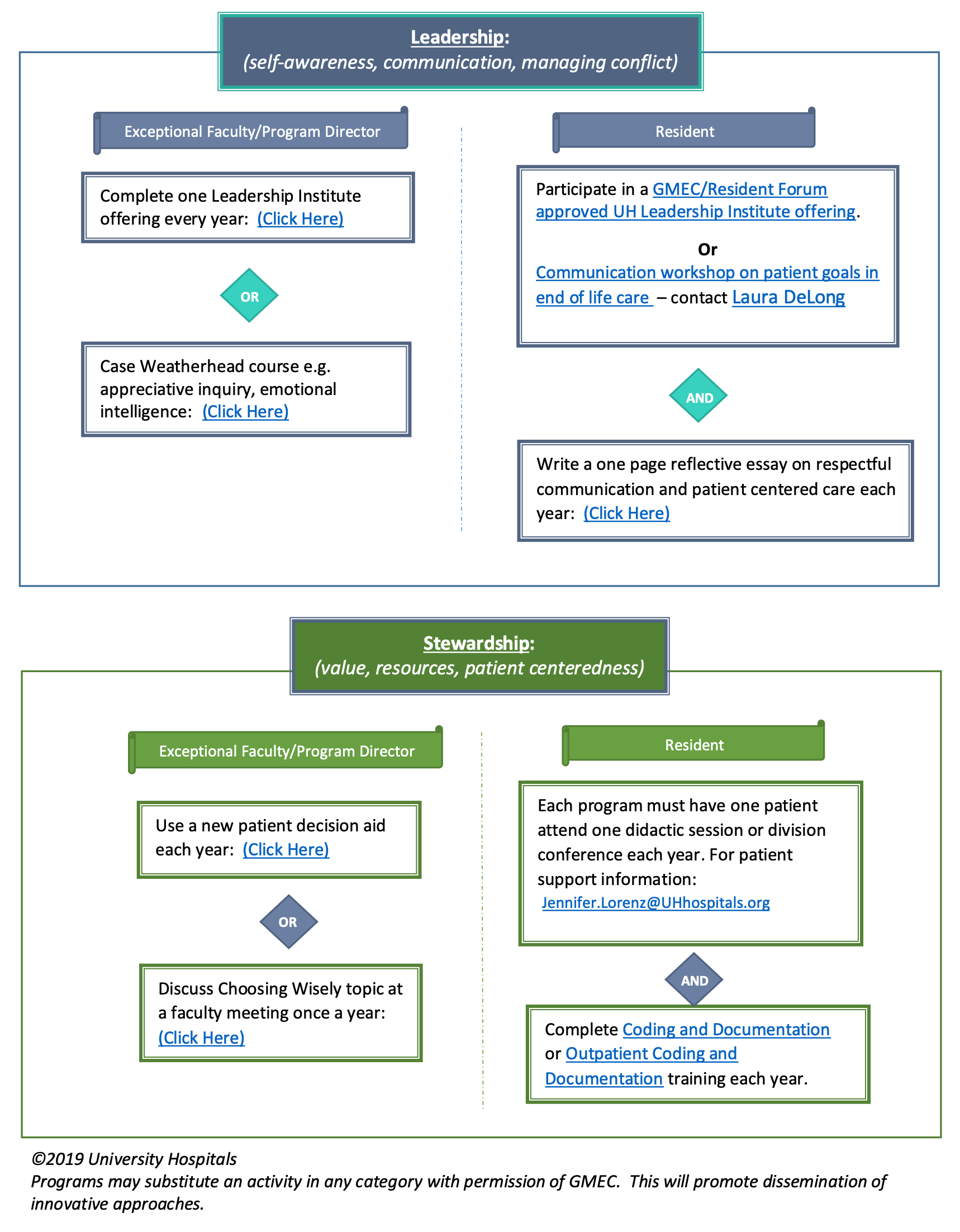Core Curriculum
Didactics
Multidisciplinary Neurocritical and Critical Care Lecture Series
Like all intensivists, the neurointensivist assumes the primary care role for patients in the ICU, coordinating both the neurological and medical management of the patient. Therefore, the Core Curriculum for the UH Cleveland Medical Center Neurocritical Care Fellowship Training is evenly split between neurological diseases and conditions and medical diseases and conditions that commonly complicate acute neurological illnesses.
Fellows attend the Multidisciplinary Neurocritical Care Lecture Series. This lecture series runs throughout the year and beginning with the Emergency Neurology Lecture Series in the summer months and continuing in the fall with a weekly lectures that cover all aspects of neurocritical care. Lectures are taught by faculty members from the Departments of Neurology and Neurosurgery with additional contributions from the Departments of Anesthesia, Surgery, and Emergency Medicine. Fellows are encouraged, when possible, to also attend the Multidisciplinary Surgical Critical Care Lecture series.
Neurology and Neurosurgery conferences
In addition to the Neurocritical Care Lecture series and Surgical Critical Care Lecture Series, fellows attend a variety of Neurology and Neurosurgery conferences, including the Stroke Conference, Stroke/Neurocritical Care Journal Club, Neurology Mortality and Morbidity conference, and Neurology Ethics Conference. There is also a quarterly Northeastern Ohio Neurocritical Care Meeting that fellows attend. Fellows are encouraged to attend other conferences but attendance is optional.
Required
- Weekly
- Multi-Professional Neurocritical Care Lecture Series
- Neurology Emergency Lecture Series (July – September)
- Stroke Conference
- Monthly
- Neurology Mortality and Morbidity Conference
- Stroke/Neurocritical Care Journal Club
- Quarterly
- Neurology Ethics Conference
- Northeastern Ohio Neurocritical Care Meeting
Encouraged
- Weekly
- Multi-Professional Surgical Critical Care Lecture Series
- Neuroscience Grand Rounds
- Neurosurgery Core Curriculum Lecture Series
- Neurosurgery Clinical Conference
- Monthly
- Neurosurgery Mortality and Morbidity Conference
Optional
- Weekly
- Epilepsy Grand Rounds
- Epilepsy Management Conference
- Multidisciplinary Tumor Board
- Neurosurgery Clinical Pathological Conference
- Neurosurgery Journal Club
- Neurosurgery Skull Bass/Vascular Conference
- Monthly
- Muscle and Nerve Biopsy Conference
- Neurology Journal Club
- Neurology CPC
- Neuromuscular Grand Rounds
Training Courses
In addition, Neurocritical Care fellows have the opportunity to attend several comprehensive courses during their training:
- UH/CWRU EEG/Epilepsy Course (required)
- MetroHealth Critical Care Ultrasonography Course (encouraged)
- Wake Forest Neurovascular Ultrasound Course (encouraged)
Intranet Curriculum Site
Fellows have access to our extensive Neurocritical Care Intranet Curriculum Site which has over 500 PPT presentations, critical care algorithms, evidenced-based critical care guidelines, Emergency Neurological Life Support articles, and links to key critical care websites (e.g., Neurocritical Care Society, Society of Critical Care Medicine, Society of Neurosurgical Anesthesia and Critical Care).
Procedural Skills
Neurocritical Care is a procedure-oriented specialty, making it essential for fellows to gain hands-on experience with invasive techniques critical to patient management. Equally important is a strong understanding of the basic physiology and technical principles underlying monitoring and interventional procedures.
During their training, fellows will learn to identify the need for and proficiently perform common critical care procedures, including:
- Arterial catheter placement
- Central venous catheter placement
- Critical care ultrasound examination
- Endotracheal intubation
- Fiberoptic bronchoscopy
- Percutaneous dialysis access
- PiCCO (Pulse index Continuous Cardiac Output) placement
- Thoracentesis and paracentesis
- Transcranial Doppler Ultrasound
Health Systems Science Curriculum
In addition to the clinical and basic sciences, the profession of Medicine requires life-long learning and leadership development in the area of healthcare systems. The UH GME Health Systems Science Curriculum has been developed for faculty and trainees to achieve this goal with a focus on Leadership, Stewardship, Quality and Patient Safety, and Population Health. Neurocritical Care Fellows complete this curriculum during their fellowship. This is accomplished through a combination of self-study, didactics, and conferences.



